Religion
Merab: Bible
Merab, one of the daughters of King Saul, is originally offered in marriage to David, whom Saul hopes to have killed. However, Saul’s plan fails, and Merab marries another man. The story of Saul’s attempt to arrange Merab’s marriage shows the social structures between fathers and daughters among the ancient Israelites.
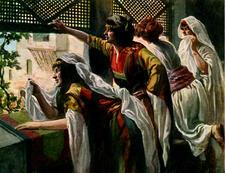
Michal, daughter of Saul: Midrash and Aggadah
The Midrash and Aggadah provide insight into the marriage of Michal, daughter of Saul, to David, to whom she was loyal over her father, Saul. Michal was later punished for publicly disrespecting David.
Midrash and Aggadah: Introduction and Sources
Midrash and Aggadah: Terminology
The midrash and aggadah are the two collections of non-legal writing from the Rabbis. In modern times, the two terms are generally used interchangeably.
Midwife: Bible
Midwifery is one of the oldest professions, and several biblical narratives refer to midwives. In addition, in one psalm God is metaphorically depicted as a midwife, delivering a person from danger. Israelite obstetrical practices were probably similar to ones known from other ancient Near Eastern texts.
Midwife: Midrash and Aggadah
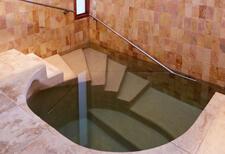
Mikveh
The mikveh is a ritual bath prescribed by ancient Jewish law for the rite of purification. It had particular significance for Jewish women, who were required to immerse themselves in the mikveh following their menstrual periods or after childbirth in order to become ritually pure and permitted to resume sexual activity. The practice has been jettisoned by many Jews but continues to be observed today, not only in Orthodox communities but also by feminists, queer Jews, and others who have reinterpreted the ritual.
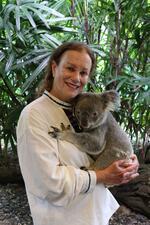
Avis Miller
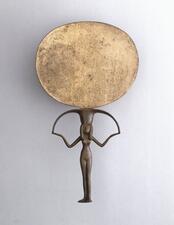
Ministering Women and Their Mirrors
Women who ministered at the entrance of the Tabernacle gathered around to donate their copper mirrors (Exodus 38:8), which were then smelted down to make the basin where the priests would wash before entering the sanctuary. The women may have served as guards, warding off evil with their mirrors. Midrash, however, conjectures that the women used these mirrors to seduce their husbands in Egypt, raising up the hosts of Israelites.
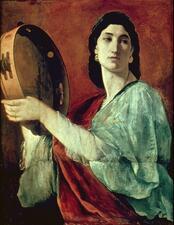
Miriam: Bible
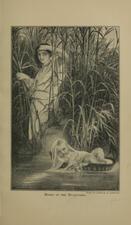
Miriam: Midrash and Aggadah
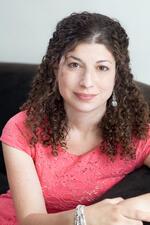
Tova Mirvis
Mizrahi Feminism in Israel
Mizrahi feminism goes beyond the typical western scope of feminism to include the history and issues that concern women in the Middle East in Israel and in Arab and Muslim countries. An intersectional feminism, it is particularly sensitive to issues of race, class division, immigration, and ethnic discrimination.
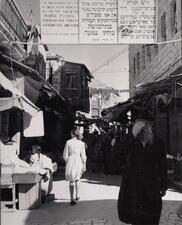
Modesty and Sexuality in Halakhic Literature
Though it is not mentioned in the Bible, modesty (zeni'ut) has become a significant part of modern halakhah, especially in the realm of sexuality. For women, sexual modesty means covering up their bodies. For both men and women, modesty also entails certain behavioral rules. These modesty rules ensure that sex happens in a way that is deemed proper, in the right time and place.
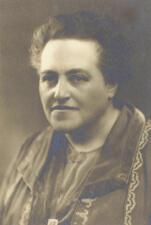
Lily Montagu
Lilian Helen Montagu was a British social worker, a magistrate in the London juvenile courts, suffragist, writer, religious organizer, and spiritual leader who founded and long remained the driving force behind the Liberal Jewish movement in England.
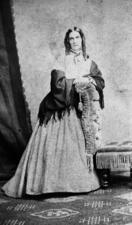
Emma Mordecai
Emma Mordecai (1812-1906) navigated direct challenges to her Jewish faith and to her southern ideals by remaining loyal to both. She responded to the Civil War, which stirred antisemitism in the South and especially threatened Richmonders, with renewed commitments to Judaism and to the racist ideals of the Confederacy.
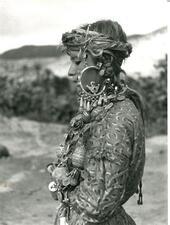
Morocco: Nineteenth and Twentieth Centuries
The Moroccan Jewish community was the largest Jewish community in North Africa during the nineteenth and twentieth centuries. The status of Moroccan Jewish women was affected by a variety of factors, including a patriarchal order and social changes brought about by economic development, urbanization, and contact with European countries.
Mother of Micah: Bible
The story of Micah’s mother in Judges 17 is short, but it offers a key insight into ancient Israelite women’s important role as a leader in household worship.
Mother of Micah: Midrash and Aggadah
One midrash posits that Delilah was Micah’s mother, based on two stories in the Bible that mention Delilah and Micah immediately after one another. However, Rashi argued that the timelines of Delilah and Micah’s lives meant that they could not be related.
Mother of Samson: Bible
Though her name is never mentioned, Samson’s mother plays a vital role in shaping her son, one of the greatest among the Judges. When notified by a divine messenger that her son must be a Nazirite, she herself keeps the Nazirite vows, ensuring that he could grow up to become a hero to Israel.
Naamah: Bible
Naamah is one of only three women included in the genealogies of the early chapters of Genesis. No vocational role is ascribed to Naamah; however, her name may signify that she is the archetypal founder of vocal music.
Naamah: Midrash and Aggadah
The Rabbis have differing views on Noah’s wife Naamah, portraying her as both very beautiful and also as a malevolent seductress. The negative interpretation of Naamah is seen in the later midrash and the Zohar, which describe her as a seducer of men and even of demons.
Nahat Ruah Le-Nashim (Women's Spiritual Satisfaction)
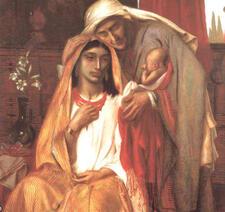
Naomi: Bible
Naomi is featured prominently in the Hebrew Bible and is portrayed as a woman who both challenges and conforms to patriarchal expectations. Analyses of Naomi from a modern feminist lens include varied interpretations of her actions, but she nevertheless dominates the stories in the Book of Ruth and effectively controls the situations of which she is a part.


